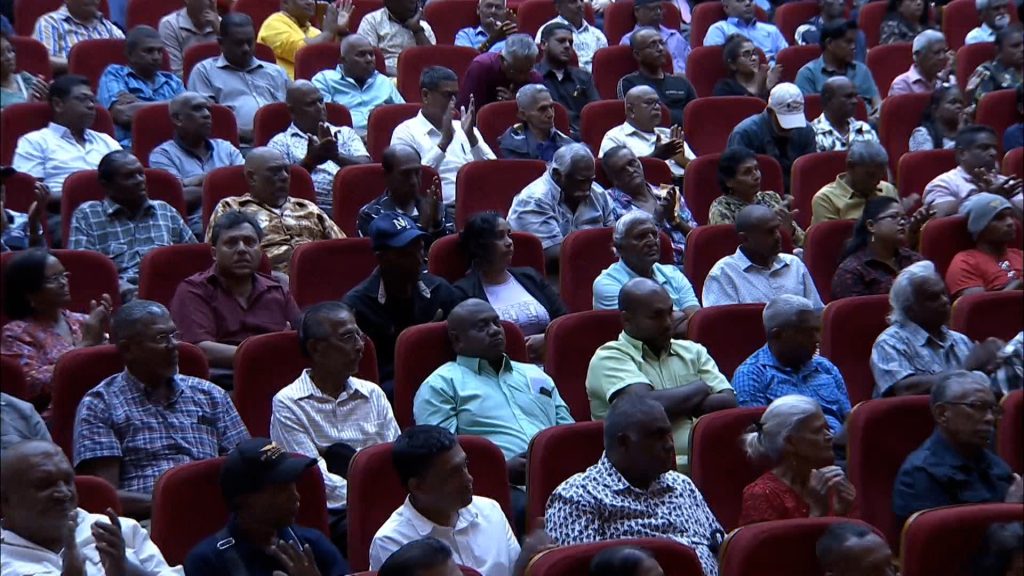After more than two decades of waiting, some of the former Caroni (1975) Limited workers are finally receiving leases to their lands.
Speaking at the Caroni Lease Distribution Ceremony themed “Rooted in Resilience” at the Southern Academy for the Performing Arts (SAPA) on Tuesday, Prime Minister Kamla Persad-Bissessar described the distribution as a milestone.
“Most are two-acre agricultural plots. Some include residential lots under the VSEP. A lease is a key. It is a key to open four doors. One: security of tenure – that is the legal right to build, to improve, to ensure and plan. Secondly, access to finance – mortgages, equipment and working capital become real because this land, this deed that you now have, will be your security. Third, productive enterprise – crops, livestock, and agro-processing that could create jobs. And four, generational wealth – a lawful asset that you will now have that you can pass to your children and your grandchildren.”
Minister of Agriculture, Land and Fisheries, Ravi Ratiram, called it a moment of “fulfilment, recognition and history” for those who helped shape the nation’s sugar industry before its closure in 2003.
“Former employees of Caroni 1975 Limited, who through their years of dedicated service have shaped the agricultural sector and left an indelible mark on the historical landscape of Trinidad and Tobago. Caroni 1975 Limited was more than just a company. It was a cornerstone of our nation’s sugar industry and rural economy, providing livelihood for thousands of families and fostering community development across generations.”
As it pertains to the other sites for distribution, Minister of Legal Affairs and Minister in the Ministry of Agriculture, Land and Fisheries, Saddam Hosein, said works have begun at the Exchange 2 site in Couva. He said those plots will be ready in the coming months.
“I’ve requested funding to have other sites completed to finally settle this historical wrong perpetuated by the former government, and I must also explain why we are in this position today. The EMBDC is a State Enterprise which was assigned the responsibility for the development of these lots. However, I’m advised that in the last 10 years, works halted on every site, leaving them in a state of decay. From checks within the EMBDC, instead of spending money to develop the lots and distribute to these Caroni workers, some who have died waiting for their lands, significant monies were spent by the last government on legal fees.”
